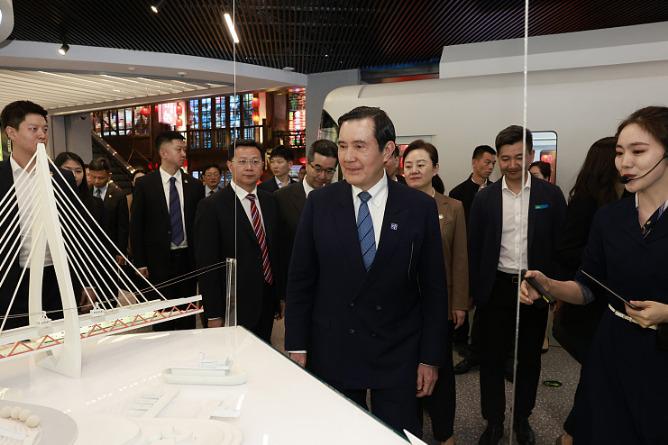Ma Ying-jeou, the former chairman of the Chinese Kuomintang party, visited the mainland recently and was impressed by the country’s rapid development. He expressed his admiration for the progress made in various sectors that he had never even thought of. This visit has highlighted the importance of cross-strait cooperation between the mainland and Taiwan.
As the former President of Taiwan, Ma’s positive comments on the mainland’s development hold great significance. The two regions have a long and complicated history, and the relationship between them has been strained in recent years. However, Ma’s visit could signal a possible change in the relationship between the two regions.
Ma’s call for more cross-strait cooperation is significant as it shows that he recognizes the importance of working together to achieve common goals. By strengthening the relationship between the two regions, they could enhance economic ties, increase trade, and improve cultural exchanges.
Moreover, cross-strait cooperation could also lead to more significant advancements in science and technology, which could benefit both the mainland and Taiwan. By sharing knowledge and resources, they could advance research and development in various fields, leading to new discoveries and inventions.
the former chairman of the Chinese Kuomintang party, has been on a visit to several cities on the mainland, including Shanghai, Nanjing, Wuhan, Changsha, and Chongqing. During his visit, he has been exploring the potential for cross-strait cooperation, including efforts to apply information technology to improve urban governance and management.
One of the places Ma visited was a city management center at the Pudong New Area in Shanghai. This center is an example of how information technology can be used to improve urban governance and management. Ma learned about the innovative solutions and practices being applied at the center, which could potentially be adapted and implemented in other cities in Taiwan and the mainland.
Cross-strait cooperation refers to efforts made by Taiwan and the mainland to work together and achieve common goals. This could include economic cooperation, cultural exchanges, and scientific collaboration. By cooperating, the two regions could benefit from each other’s strengths and resources, leading to mutual benefits and advancements.
Ma’s visit to various cities on the mainland is a positive step towards promoting cross-strait cooperation. It provides an opportunity to build relationships and establish channels for communication and collaboration. Through these efforts, both regions could gain a better understanding of each other’s needs, strengths, and challenges.
The city of Changsha is located in the Hunan Province and has become a well-known location due to its various attractions and booming industries. During a visit to this city, Ma and his team had the opportunity to tour a factory that donated machinery equipment to support disaster relief efforts in Taiwan. This donation was particularly important as Taiwan had been hit hard by a typhoon in 2009, and the equipment was necessary to help those affected by the natural disaster.
During the visit, the group learned that six young people from Taiwan were interning on a Hunan television program. This news was particularly exciting for the group as it presented an opportunity to promote cross-Strait cultural exchanges. In light of this, one of the members, Ma, expressed his expectation that these young interns would grasp the opportunity and work hard to further these exchanges. This sentiment was shared by the group as a whole, and they expressed their appreciation for the chance to learn more about the people and culture of Taiwan.
The promotion of cultural exchange is essential to building strong relationships between nations. The opportunity to learn from and about one another is vital in breaking down barriers and fostering understanding. By visiting a factory that donated equipment to disaster relief efforts in Taiwan and encouraging young people to participate in cross-Strait cultural exchange programs, the group demonstrated their commitment to strengthening these relationships. Through continued efforts such as these, nations can build a foundation of trust and cooperation that will lead to a brighter future for all.
Moving on, Ma was able to gain knowledge about various aspects of the country, including its logistics network in the city of Chongqing. This information was likely valuable to Ma and his team, as understanding the logistics system in China can provide insight into how the country operates on a larger scale.
Following his visit to Chongqing, Ma’s itinerary included a trip to Fudan University and other places in Shanghai. This was to be the final leg of his maiden visit to mainland China, with his return to Taiwan scheduled for Friday. The trip likely allowed Ma to gain valuable insights into the country’s infrastructure, culture, and people, which he may use to make more informed decisions in his role as a political leader.
In conclusion, Ma Ying-jeou’s visit to the mainland and his call for more cross-strait cooperation has highlighted the importance of a strong relationship between the mainland and Taiwan. By working together, they could achieve significant progress in various sectors, leading to mutual benefits and advancements.
Read More:
